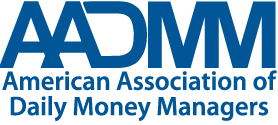
Financial abuse of elders is a serious problem in today’s world. The financial exploitation of older adults has exploded in recent years and it’s important that we become more vigilant in protecting vulnerable individuals from becoming potential victims. But what exactly does this entail and how can you help prevent it?
Elder Financial Abuse or Exploitation is defined in the Older Americans Act of 2006 as:
“The fraudulent or otherwise illegal, unauthorized, or improper act or process of an individual, including a caregiver or fiduciary, that uses the resources of an older individual for monetary or personal benefit, profit, or gain, or that results in depriving an older individual of rightful access to, or use of, benefits, resources, belongings, or assets.”
Financial abuse is a growing problem
It’s estimated that older adults lose more than $36 billion every year to scams, fraud and exploitation, according to medicareadvantage.com. That is staggering! Seniors can be especially vulnerable due to age-related decline in cognitive thinking, which can make them easy targets.
Examples of elder abuse include cashing an elderly person’s check without them knowing or authorizing it. Signatures can be forged, or an elderly person may be deceived into signing certain documents relating to their assets.
Older adults are more vulnerable
Older Baby Boomers also have a median net worth of more than $241,000, which makes them very desirable targets for scammers and thieves.
Not only do they have the disposable income available for potential improper use, but the elderly also appear to be worse at making decisions when it comes to their finances. One study conducted at Boston College suggested that a person’s financial literacy test scored decline by 1% every year over the age of 60. Unfortunately, many older adults may not even realize they are making poor financial decisions.
The elderly also tend to have a more trusting nature, making them more likely to fall for different scams that can be circling an area. Different studies have suggested that seniors may not as readily identify potential risks, such as someone untrustworthy who appears to be working on the elderly person’s behalf.
Seven resources to help prevent elder financial abuse
The following 7 resources will help you when you’re looking for answers.
This is a U.S. government agency that regulates the activity of banks, lenders and other financial institutions to ensure consumers remain free of unfair, deceptive or abusive practices.
The Federal Trade Commission works to protect consumers from identity theft by providing resources for anyone who fears their personal information has been breached or lost.
The Elder Financial Protection Network is an organization dedicated to helping seniors recognize and avoid financial abuse.
The National Elder Law Foundation is certified by the American Bar Association and serves by helping consumers to connect with attorneys specializing in elder law and needs.
This national non-profit organization has representation in all 50 states and works to increase awareness of elder abuse through education and advocacy.
The NCEA is a national resource center that provides elder abuse information, resources and training to the public and community-based organizations.
The U.S. Department of Health and Human Services builds awareness of elder fraud, allows for fraud to be reported and provides support for victims and their families.
In addition, be mindful of any family members who may try to coerce a senior into making changes that could affect their finances. Relatives could be looking to increase their inheritance or may be looking to steal possessions without their knowledge.
Tips to help older adults in your life
Here are some tips to help you make sure the older adults in your life are protected.
- Avoid Joint Bank Accounts
Family members may push for joint bank accounts so they can more easily make payments or withdrawals on a loved one’s behalf and can help to manage their finances. But this also makes it easy to open up the door to theft and financial abuse. If necessary, have multiple parties privy to the statements on a regular basis.
- Invoke a Power of Attorney
The risk of financial abuse heightens after a person develops a decreased capacity to make independent financial decisions. Invoking a power of attorney can be one proactive way to prepare for the future of one’s wealth and assets.
- Set Up a Revocable Trust
Placing a senior’s assets in a revocable living trust and naming a fiduciary can be one way to protect against outsiders getting access to any of the senior’s assets.
- Beware of Changes in Money Management
Have you noticed a sudden change in an elderly person’s bank management? Are they withdrawing large sums of money? If there are additional names listed on the bank account, an abuser may be taking withdrawals from the bank account without the owner realizing it.
Summary
Financial elder abuse has been steadily increasing over the years, and is still often overlooked. However, if we take the necessary precautions and implement preventative measures as outlined above, we can prevent this type of abuse from happening.
———–
Barbara Boustead is the owner of Mary’s Daughter in Madison, Wisconsin. Barbara is a Social Worker and Daily Money Manager.











